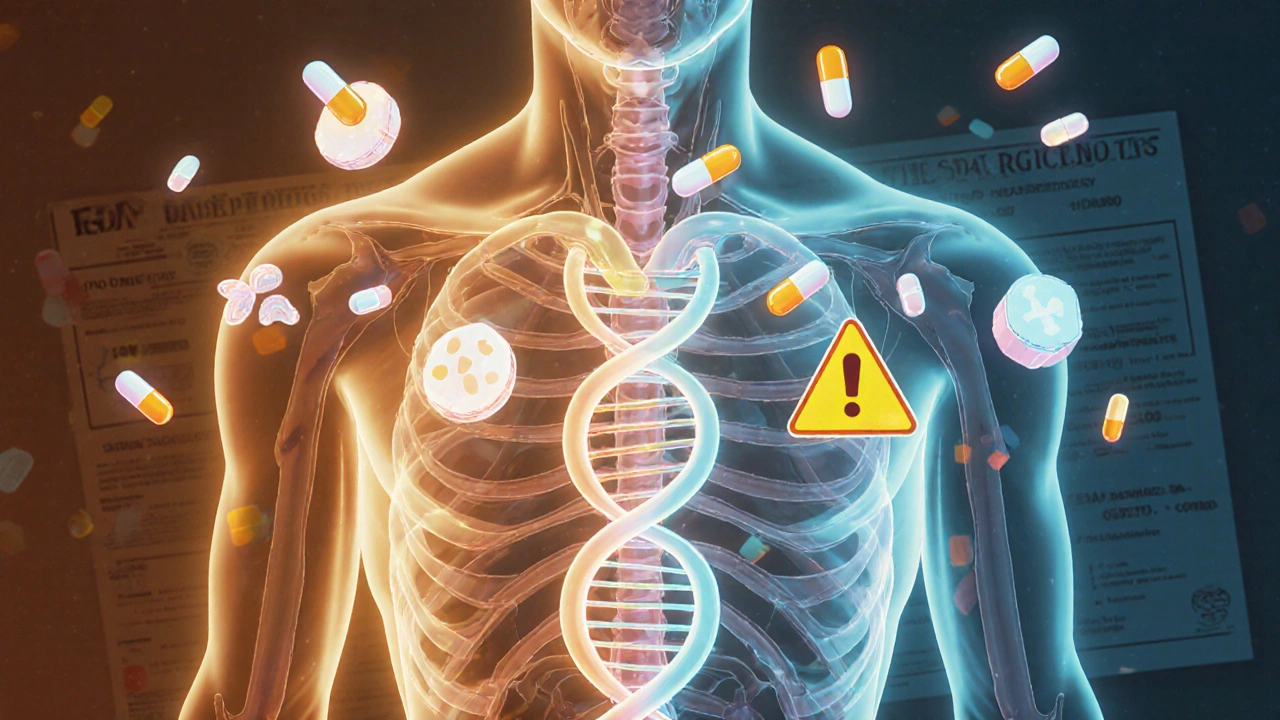HLA-B*15:02: What It Means for Drug Safety and Genetic Risk
When your body reacts badly to a common medicine, it’s not always about dosage or bad luck. Sometimes, it’s your genes—and HLA-B*15:02, a specific genetic variant in the human leukocyte antigen system that signals heightened risk for severe skin reactions to certain drugs. Also known as HLA-B15:02, this marker doesn’t cause illness itself, but it acts like a red flag for your immune system when exposed to specific medications. If you carry HLA-B*15:02, taking drugs like carbamazepine or phenytoin could trigger life-threatening conditions like Stevens-Johnson syndrome or toxic epidermal necrolysis—rare but devastating skin and mucous membrane reactions that need immediate hospital care.
This isn’t theoretical. The FDA and other global health agencies now recommend HLA typing, a genetic test that identifies whether someone carries HLA-B*15:02 before prescribing high-risk drugs for people of Asian descent, especially those from Han Chinese, Thai, Malaysian, or Filipino backgrounds, where this variant is most common. It’s not about race—it’s about ancestry and inherited biology. Even if you’ve taken these drugs safely before, if you’re newly identified as HLA-B*15:02 positive, future use could be dangerous. The same goes for people with unknown family origins who are prescribed these medications. Testing is fast, simple, and often covered by insurance when clinically indicated.
It’s not just carbamazepine. Other drugs like oxcarbazepine, lamotrigine, and even some antibiotics and NSAIDs have shown weaker but still concerning links. That’s why pharmacogenomics, the study of how genes affect how your body responds to drugs is changing how doctors choose treatments. Instead of trial and error, they’re starting with your DNA. This shift means fewer hospitalizations, fewer scars, and more confidence in treatment plans. You don’t need to be sick to benefit from this test. If you’re about to start epilepsy treatment, chronic nerve pain therapy, or even long-term migraine prevention, asking your doctor about HLA-B*15:02 screening could be the smartest health move you make this year.
Below, you’ll find real-world guides that connect HLA-B*15:02 to the medications it affects, how testing works in practice, and what alternatives exist when you’re positive. No fluff. Just clear, actionable info to help you or someone you care about avoid serious harm.

Genetic Factors That Increase Susceptibility to Drug Side Effects
- by Colin Edward Egan
- on 29 Oct 2025
Genetic differences can make medications dangerous for some people and useless for others. Learn how genes like CYP2D6 and HLA-B*15:02 affect drug reactions, which side effects are most predictable, and what you can do to stay safe.
